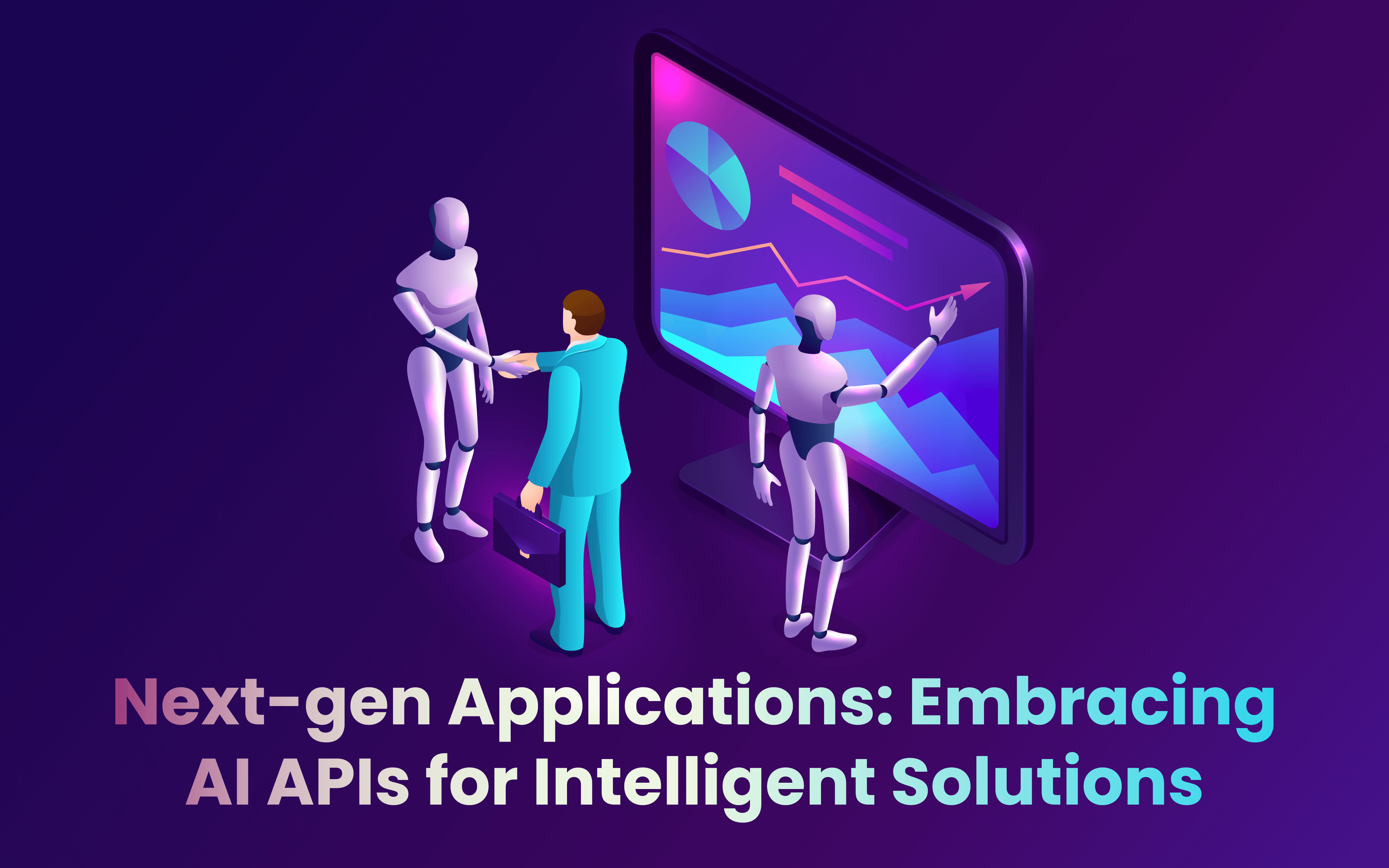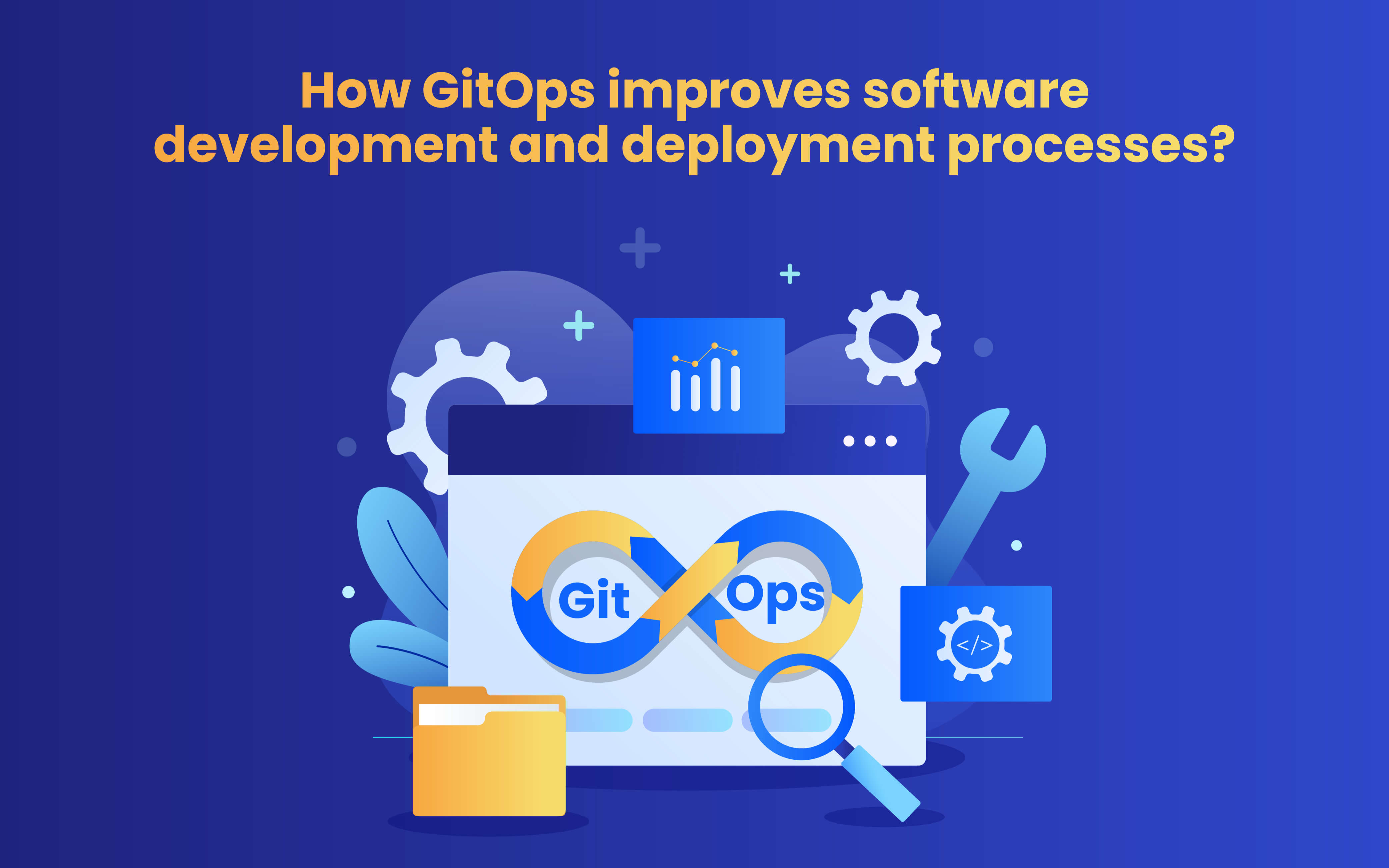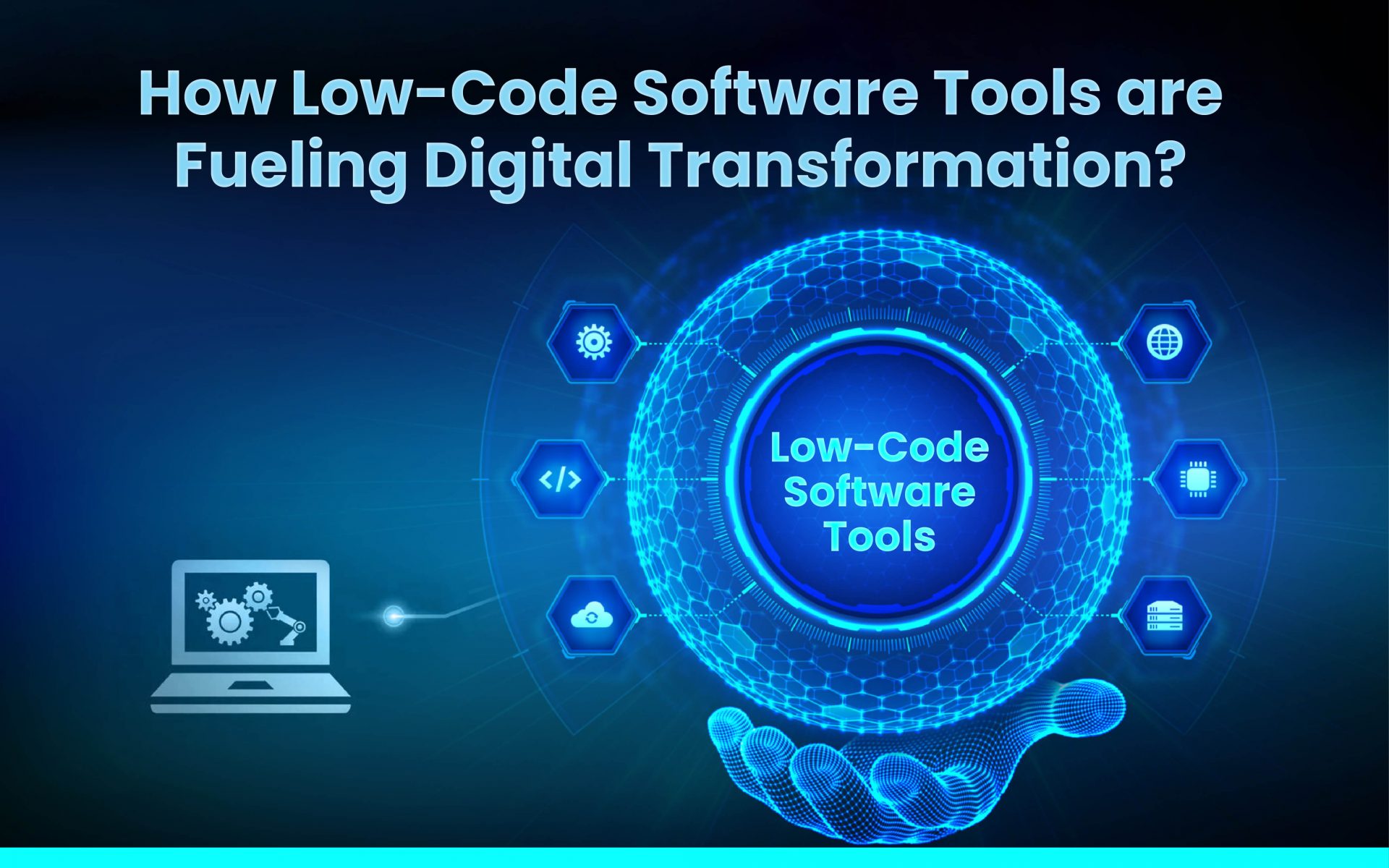Blogs
To know about all things Digitisation and Innovation read our blogs here.
API
Next-gen Applications: Embracing AI APIs for Intelligent Solutions
SID Global Solutions
28 June 2023

Introduction
In today’s fast-paced digital era, businesses are constantly seeking innovative solutions to stay ahead of the competition. Next-generation applications that leverage the power of artificial intelligence (AI) APIs have emerged as game-changers. By integrating AI capabilities through APIs, organizations can unlock intelligent functionalities, revolutionizing various industries. Explores the concept of next-gen applications and delves into the benefits, challenges, and best practices of embracing AI APIs to create intelligent solutions.
Also Read: Building a Secure Future: Leveraging AI for DevSecOps Success
Understanding Next-gen Applications
Next-gen applications represent a significant leap in software development, incorporating AI technologies to deliver intelligent and data-driven solutions. The evolution of applications and the transformative impact of AI on various industries includes:
- The Evolution of Applications: The world of applications has evolved significantly over time. From simple desktop software to web and mobile applications, technology has played a crucial role in shaping user experiences. With the advent of AI and machine learning, applications have entered a new phase, where they can leverage advanced algorithms to process data and make intelligent decisions. This evolution has opened up new possibilities for next-gen applications.
- Defining Next-gen Applications” Next-gen applications are a breed of intelligent solutions that harness AI APIs to deliver advanced functionalities. These applications go beyond traditional software capabilities by leveraging AI algorithms, natural language processing, computer vision, and other AI technologies. By integrating AI APIs into their architecture, organizations can tap into the power of data analysis, pattern recognition, and predictive modeling to create highly personalized and intelligent user experiences. These applications have the potential to transform industries such as healthcare, finance, e-commerce, and more.
Benefits of Next-gen Applications with AI APIs
The numerous advantages that organizations can gain by embracing AI APIs in their application development process.
- Enhanced User Experiences: Next-gen applications empowered by AI APIs can deliver enhanced user experiences. By leveraging natural language processing, sentiment analysis, and recommendation engines, these applications can understand user preferences, provide personalized recommendations, and engage users in a more intuitive manner. For example, AI-powered chatbots can simulate human-like conversations, providing instant support and guidance to users.
- Improved Decision Making: AI APIs enable next-gen applications to analyze vast amounts of data and extract meaningful insights. This data-driven decision-making capability helps organizations identify trends, patterns, and anomalies that might otherwise go unnoticed. By making informed decisions based on AI-generated insights, businesses can optimize their operations, reduce costs, and gain a competitive edge.
- Automation and Efficiency: Next-gen applications powered by AI APIs can automate repetitive and time-consuming tasks, improving operational efficiency. For instance, AI-powered image recognition can automate the processing and analysis of visual data, enabling organizations to handle large volumes of images or videos with minimal human intervention. Automation not only saves time and resources but also minimizes the risk of errors.
- Enhanced Security and Fraud Detection: AI APIs can bolster security measures within next-gen applications. By integrating AI-powered algorithms, applications can detect and prevent security breaches, identify potential fraud attempts, and protect sensitive data. Machine learning algorithms can continuously learn and adapt to new threats, providing robust security measures in real-time.
- Personalized Customer Experiences: With AI APIs, next-gen applications can deliver highly personalized customer experiences. By analyzing user behavior, preferences, and historical data, applications can tailor content, recommendations, and offers to individual users, creating a more engaging and personalized experience. This level of personalization can significantly enhance customer satisfaction, loyalty, and ultimately, business growth.
Also Read: The Future of DevOps: How AI is Shaping Transformations
Challenges of Embracing AI APIs in Next-gen Applications
While the benefits of AI-powered next-gen applications are immense, organizations may encounter challenges during the adoption and implementation phase. Some common challenges and provide insights on how to overcome them:
- Data Quality and Availability: One of the critical challenges in developing next-gen applications is ensuring the quality and availability of data. AI algorithms heavily rely on high-quality, diverse, and relevant data to generate accurate insights. Organizations need to invest in data collection, cleansing, and validation processes to ensure data quality. Additionally, they should explore partnerships and collaborations to access relevant datasets for training their AI models.
- Ethical and Legal Considerations: AI-powered applications raise ethical and legal concerns, such as privacy, data protection, and algorithmic bias. Organizations must navigate these challenges by implementing robust privacy policies, ensuring transparent data usage, and addressing biases in AI algorithms. Compliance with regulations and standards should be a top priority to build trust with users and stakeholders.
- Integration Complexity Integrating: AI APIs into existing applications can be complex, especially when dealing with legacy systems and infrastructure. Organizations need to carefully plan and architect their application landscape to ensure seamless integration of AI capabilities. This may involve modernizing infrastructure, refactoring code, or adopting microservices architecture to enable agility and scalability.
- Skills and Talent Gap: Developing next-gen applications requires a skilled workforce with expertise in AI, machine learning, and data analytics. However, finding and retaining such talent can be challenging. Organizations should invest in upskilling their existing teams, partnering with external experts, or exploring outsourcing options to bridge the skills and talent gap.
Best Practices for Embracing AI APIs in Next-gen Applications
To ensure successful adoption of AI APIs in next-gen applications, organizations should follow certain best practices. Key considerations to maximize the potential of AI-powered solutions:
- Define Clear Objectives and Use Cases: Organizations should clearly define their objectives and identify specific use cases where AI APIs can add value. By focusing on targeted areas, they can avoid unnecessary complexities and ensure alignment with business goals.
- Choose the Right AI APIs and Providers: There is a wide range of AI APIs and providers available in the market. Organizations should carefully evaluate their requirements and choose APIs that best align with their use cases, scalability needs, pricing models, and data privacy policies. Thorough research, proof-of-concepts, and pilot projects can help in making informed decisions.
- Ensure Data Readiness and Quality: High-quality data is the fuel that powers AI models. Organizations should ensure that their data is properly collected, cleansed, and structured to achieve accurate and reliable results. Data governance practices, data quality checks, and data preprocessing techniques should be implemented to maintain data integrity.
- Prioritize Security and Privacy: Data security and privacy are paramount in AI-powered applications. Organizations should prioritize the implementation of robust security measures, including encryption, access controls, and anonymization techniques. Compliance with data protection regulations, such as GDPR, should be diligently followed to protect user data.
- Continuous Learning and Improvement: AI models require continuous learning and improvement to stay relevant and accurate. Organizations should establish processes for model monitoring, feedback loops, and retraining to ensure that their AI models evolve with changing data patterns and user behaviors. Regular evaluation and fine-tuning of models are essential for optimal performance.
- Foster Collaboration and Cross-functional Teams: Successful adoption of AI APIs requires collaboration between various stakeholders, including data scientists, developers, domain experts, and business leaders. Cross-functional teams should work together to align business objectives, share knowledge, and ensure that AI-powered solutions address real-world problems effectively.
Also Read: Harnessing the Power of AI: Enhancing Ansible Automation for Next-Level Efficiency
Conclusion
Next-gen applications that embrace AI APIs hold immense potential to transform industries and revolutionize user experiences. By understanding the concept of next-gen applications, harnessing the benefits of AI APIs, and addressing the associated challenges, organizations can leverage the power of intelligent solutions to drive innovation, enhance customer experiences, and gain a competitive edge in the digital landscape. By following the above mentioned best practices, organizations can unlock the true potential of AI-powered next-gen applications and shape the future of technology.









